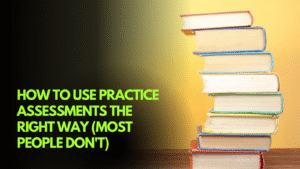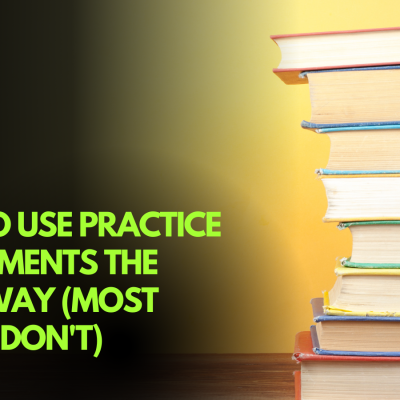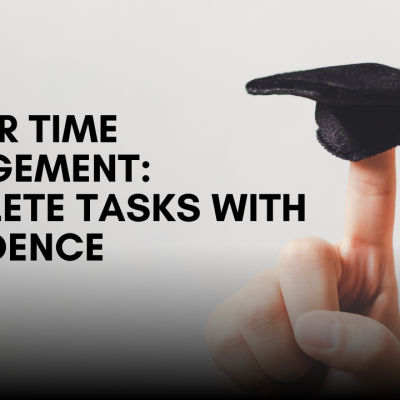Most people believe that doing more practice assessments equals better performance. But that’s only half the truth. Without the right strategy, practice sessions can become just another routine — with little improvement in your actual skills. Here’s how to use practice assessments effectively — and transform them from simple exercises into powerful learning tools.

Problem: Practicing Without Purpose
If you’re doing assessment after assessment without:
- Reviewing your mistakes thoroughly
- Timing yourself realistically
- Simulating real pressure conditions
- Analysing patterns in your errors
…then you’re just repeating the same mistakes. A practice assessment isn’t just a performance check — it’s a diagnostic tool. And like any tool, it needs to be used strategically.
Strategy: How to Use Practice Assessments Effectively
Follow this 3-step process to get real value out of every practice session.
Step 1: Create Realistic Conditions
- Use authentic materials when possible
- Time each section strictly according to real-world constraints
- Eliminate distractions — no phones, no interruptions
- Maintain focus for the full duration without breaks
This builds mental stamina and reduces anxiety during actual performance situations.
Step 2: Conduct Deep Analysis
After completing the assessment, don’t just check your results — investigate:
Time Management:
- Where did I spend too much time?
- Which sections felt rushed?
- What caused me to lose focus?
Content Understanding:
- What types of questions or tasks did I struggle with?
- Did I misunderstand any instructions?
- Where did my knowledge gaps show?
Performance Patterns:
- Am I making the same types of errors repeatedly?
- Do I perform differently under time pressure?
- What skills need the most attention?
Step 3: Create Targeted Improvement Plans
Use your analysis to guide your learning priorities:
Skill-Specific Focus:
- Weak in data interpretation? Practice that daily
- Struggled with written organization? Work on structure and transitions
- Lost confidence during presentations? Focus on preparation techniques
Strategic Adjustments:
- Modify your approach based on what works
- Allocate study time to your biggest improvement opportunities
- Set specific, measurable goals for your next practice session
This transforms practice assessments from simple score sheets into actionable development plans.
Maximizing Practice Assessment Benefits
For Professional Development:
- Simulate real workplace conditions when practicing presentations or reports
- Get feedback from colleagues on communication skills and content
- Track improvement over time with consistent measurement criteria
- Focus on skills directly relevant to your career goals
For Academic Success:
- Use past exams or sample questions from your field of study
- Practice under actual test conditions including time limits and environment
- Identify knowledge gaps and create targeted study plans
- Develop test-taking strategies specific to your learning style
For Personal Growth:
- Set realistic benchmarks for skill development
- Celebrate incremental progress rather than focusing only on final scores
- Adapt your approach based on what you learn about your learning style
- Build confidence through systematic improvement
Practice with Purpose, Not Just Frequency
Effective practice isn’t about quantity — it’s about quality and intentionality. Whether you’re preparing for:
- Job interviews or performance reviews
- Academic exams or presentations
- Professional certifications or skills assessments
- Personal skill development goals
The key is transforming each practice session into a learning opportunity that moves you closer to your objectives.
From Practice to Performance
Remember that the goal isn’t perfect practice performance — it’s using practice to identify and address your improvement areas systematically. Each assessment should provide insights that make your next performance better than your last.
The most successful people don’t just practice more — they practice smarter, using each session strategically to build the specific skills they need for real-world success.






